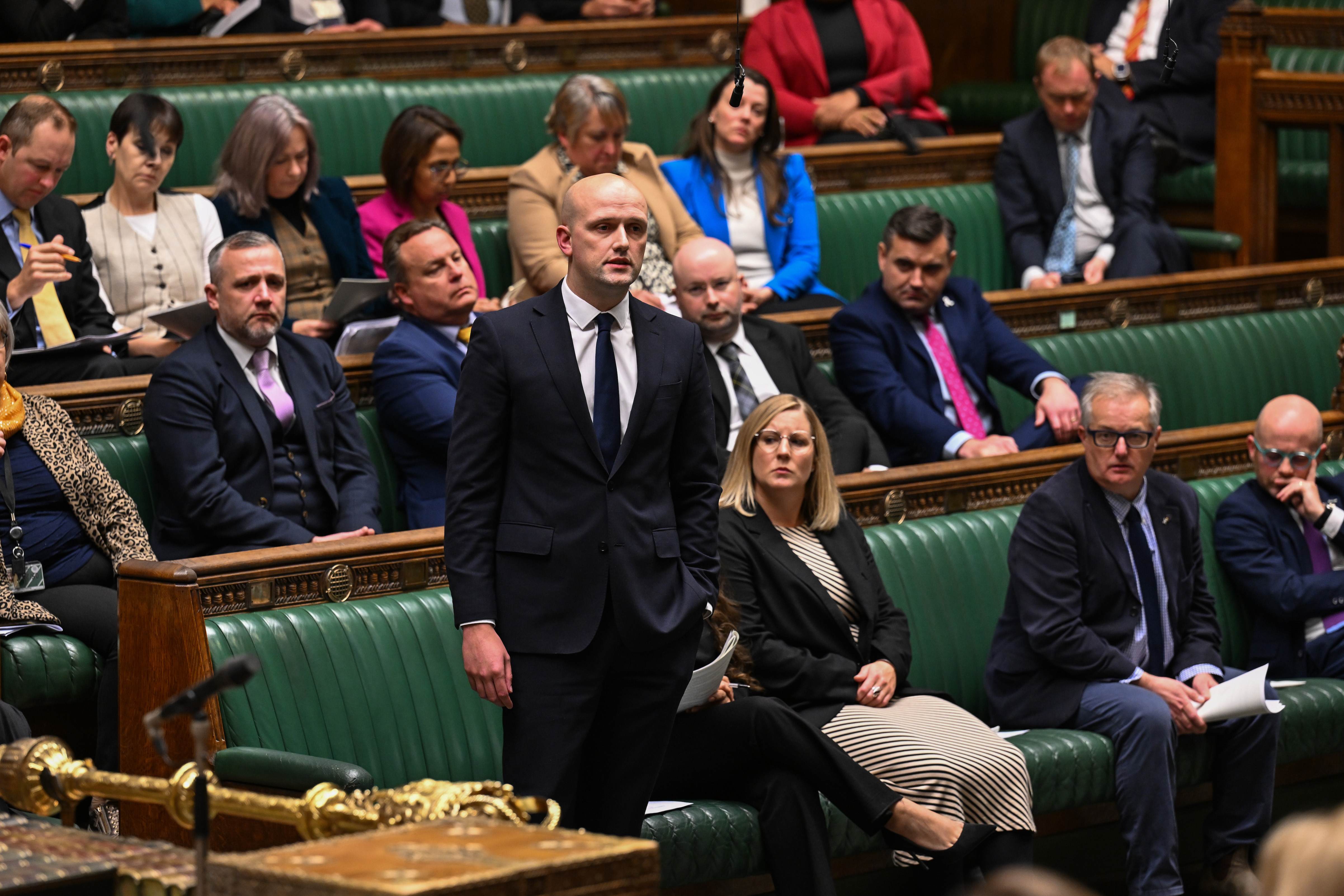What is a Zero Hours contract?
A zero hours contracts is a term given to a contract under which a worker is not guaranteed work and is therefore only paid for work carried out. They are most commonly used for ‘piece work’ or ‘on call work’.
Under a zero hours contract, an employee does not contractually have to work when asked, and nor does an employer have to provide the employee work. Under the contract, no times of work or number of hours are specified.
Zero hours contracts can exist as flexible options which in many situations can work well for both employers and workers.


The political debate around zero hours contracts
In recent years, zero hours contracts have become the focus of UK political attention, particularly in relation to their wider impact on employment rights and the stability of incomes amongst a particular section of the labour market.
The Labour Party’s 2017 and 2019 General Election manifesto contained a commitment to prohibit zero hours contracts. This remains the party’s official position.
A subsequent campaign to campaign for the end of Zero Hours contracts, Zero Hours Justice, was set up in 2020 by the President of the BFAWU trade union, Ian Hodson, and supported by the music shop entrepreneur, Julian Richer.
Arguments made in support of zero hours contracts
Much is made of the benefits that zero hours contracts can bring both to employers and employees in a number of situations.
Those supportive of the arrangements permitted by zero hours contracts take issue with claims that there has been a so called ‘explosion’ of zero hours contracts, and point to how the level of these arrangements remains relatively static at around 3% of the workforce.
From an employer’s perspective, zero hours contracts are said to allow companies to secure flexible working and thereby operate a sustainable business in the face of peaks and troughs in demand. This is said to be particularly the case in industries like the events sector or retail where the demand for labour fluctuates dramatically, either at short notice or at particular times of year.
Using zero hours contracts, employers do not incur staff costs at times when they do not have the volume of related work.
Similarly, from the perspective of many employees, zero hours contract arrangements are also said to prove beneficial, notably for those seeking occasional earnings and that are able to be entirely flexible. This is said to apply in particular to those that are in education, the semi retired, those with particular caring arrangements (typically albeit not exclusively for children), and those looking for a second ‘top-up’ job.
It is suggested that for these employees having a zero hours contract with a known employer is more settled for the employee than other forms of causal work such as working for agency. Given that the particular employee is also better known to a particular employer, the employee may also be able to obtain better terms than under equivalent agency arrangements. It is reaffirmed that under a zero hours contract, these employees are also under no obligation to take work when it does not suit them.
Supporters of the notion that flexible working arrangements, under zero hours contract arrangements, suit many people’s circumstances point to a range of statistics to back up their claims. Data from the Office of National Statistic’s Labour Force Survey shows that the majority of workers on zero hours contracts (63%) did not want to work more hours. This figure was only marginally lower than the equivalent data for those in employment not on a zero hours contract (74%).
Similarly a report previously published by the Chartered Institute of Personnel and Development (CIPD) found that a zero hours contract worker, when compared to the average UK employee, are just as satisfied with their jobs (60% versus 59%); actually happier with their work-life balance (65% vs 58%); and less likely to think they are treated unfairly by their organisation (27% vs 29%).
In evidence cited to suggest the value of zero hours arrangements, the CIPD found that zero hours workers are, on average, nearly twice as likely to be satisfied with having no minimum set contracted hours, as they are to be dissatisfied.
In contrast to the negative narrative that is sometimes attributed to zero hours contracts, supporters of the practice, also point to a yougov study, in which 80% of those on zero hours contracts stated that they had never penalised for not being available for work, and where only 21% believed their pay was lower than comparable permanent staff doing similar jobs.
Arguments against zero hours Contracts
However in the same way that advocates of zero hours contracts actively champion the benefits of these arrangements for some people, those opposed to the practice, portray an alternative narrative for other people.
Those opposed to zero hours contract point to the drawbacks that can result from this form of working arrangement, and whilst acknowledging that they can suit certain people, their focus is very much on the impact of the system on those seeking more permanent arrangements and guaranteed hours.
The Trade Union, Unison, highlights how zero hours contracts fail to provide people with the regular earnings certainty that they need in order to meet their bills and plan for the future.
For many operating under zero hours contracts, the associated financial pressures, are said to force them to feel that they need to respond at short notice to calls to work. There is said to be a fear, that failing to do so, may lead to them being penalised in the future and therefore facing prolonged periods without work. This is something that disrupts people’s lives outside of work and which can put particular strain on families needing to care for dependants. Moreover the feeling that they need to be available for work by one employer, is said to hinder people in taking up other employment.
The think tank, the Resolution Foundation, has further suggested that workers on zero hours contracts earn on average 6.6% less per hour (93p per hour) than employees with similar characteristics, and in similar roles, who were not employed on zero-hours contracts.
Attention is drawn to how the variability of earnings resulting from zero hours creates difficulties for those seeking a loan or trying to obtain a mortgage. Similarly the arrangements are said to cast into question, a person’s eligibility to claim various state benefits, such a working tax credit for a single parent, which is tied into whether a person has worked 16 hours a week.
Moreover, trade unions criticise zero hours contracts because of the way in which they are perceived as allowing companies to exploit their staff. The ability to control the working hours that are allocated, and thus a person’s potential income, is seen as a tool which unscrupulous employers can use to reward or reprimand employees. The Chartered Institute of Personnel and Development has also warned that the power of managers to allocate hours can lead to favouritism in the workplace.
Unions suggest that the imbalance in the working relationship caused by zero hours contracts prevents people from effectively asserting their employment rights. This has said to be particularly the case in the home care sector, where working hours have been scheduled in such a way that travel time between different homes is not adequately provided for, thereby causing some staff to work considerably beyond their paid hours. There are also concerns that zero hours contracts reduce safety in the workplace, as people again become too frightened to lodge their concerns, fearing that it may have an impact on the level of future shifts that they are allocated.
It is further argued that the calculations that lie behind a multitude of employment related benefits (such as pensions), ones that are usually clearly defined for permanent staff, are variable and hard to understand for those working irregularly under zero hours contracts.

During his time as Labour Leader, Jeremy Corbyn was a vocal critic of zero hours contracts
How many people are on zero hours contracts?
During the last quarter of 2020 , some 978,000 people, equivalent to 3% of the Labour Force, were said to be on a zero-hours contract, according to the Office of National Statistics’ Labour Market Survey.
The proportion of the workforce employed on a zero hours contract has remained largely static in the last few years, with the equivalent figure being 2.8% in the last quarter of 2016. The growth of zero hours contracts was said to have doubled in the period between 2005 and 2011.
According to official data from the Labour Force Survey (LFS), less than 1% of people in employment had a zero-hours contract before 2005.
According to the Office of National Statistics, 65% of people on a zero hours contract reported that they were working part time, compared to 26% of the workforce as a whole. Workers on a zero-hours contract usually worked an average of 25 hours per week, compared to 36 hours for all people in employment.
The Labour Force survey has suggested that of the 3% of the workforce employed on a zero hours contract: 54% are women, 33% are aged between 16 to 24, 18% are in full time employment, and 22% are employed in the accommodation or food services sector.
Larger firms are said to make the most use of zero hours contracts. The ONS Business Survey reports that 28% of employers with 250 employees make some use of zero hours contracts, compared to 5% of employers with less than 10 staff.
It has previously been suggested that 90% of staff at the retailer Sports Direct have been working on a zero hours contract, and that zero hours contracts are also heavily used by firms such as J D Wetherspoon, McDonalds, and Subway. Buckingham Palace is also said to have used zero hours contracts for its seasonal summer workers.
Zero hours contracts around the world
A number of European countries prohibit the use of zero hours contracts, for example the practice is not allowed in France, Germany, Italy, the Netherlands, Poland, Denmark and Spain.
New Zealand moved to outlaw zero hours contracts in 2016.
In Canada, so called ‘casual contracts’ operate in the same way as zero hours contracts in the UK, where there are no guaranteed minimum hours, and pay is pro rated in line with the hours worked.
The changing legal position around UK zero hours contracts
The legal status of zero hours contracts has been subject to change in recent years in the light of new government legislation and decisions by the courts.
At the heart of these legal discussions are the definitions given to “workers” and “employees”, and the degree of rights that these different forms of employment status provide to those involved. Traditionally those on zero hours contracts have been considered workers.
Workers on zero hours contracts are entitled to a number of basic employment rights, such as to be paid the national living or minimum wage, to be paid annual leave, to be entitled to rest breaks and weekly rest periods, to be paid for work related travel, to be covered for a health safety, and to be protected from discrimination.
Under the regulations relating to the national living wage, workers that are “required” to be ‘on call’ are entitled to be paid for doing so. Those for example required to remain at an employer’s workplace, are therefore fully entitled to be paid even if there is no work for them to do.
Court Cases in the early 2010s
In the aftermath of the growth in the use of zero hours contracts between 2005 and 2010, a number of court cases followed in the early 2010s.
In 2011 a prominent legal case at the UK Supreme Court (Autoclenz Ltd vs Belcher), delivered a judgment relating to workers on a zero hour contract. It referenced how in the face of an ‘inequality of bargaining power’, the written terms of a contract may not in truth represent what was the contract in law.
In 2012, an employment appeals tribunal relating to the case involving Pulse Healthcare Ltd determined that employment contracts needed to reflect the true nature of the employment. Such that if a worker on zero hours contract regularly worked the same hours, then their employment contract was deemed to reflect that, regardless of what the written paperwork stated.
Someone who has worked the same regular shifts for six months, is thus likely to be considered as operating on a full employment contract, rather than a zero hour contract. These cases were significant because of the way in which regular hour employment contracts provide greater statutory rights than a zero hour contract.
Government changes
In May 2015, the government of Theresa May passed the Small Business, Enterprise and Employment Act. This amended the 1996 Employment Rights Act so that any exclusivity clause in zero hours contracts was no longer be enforceable. Previously some employees on zero hours contracts could have been told that they needed to obtain the permission of their employer before accepting other work.
The government then commissioned the Taylor Review into zero hours contracts, and following this 2017 review, further changes were introduced. Workers became entitled to itemized pay-slips and to receive a written statement of their particulars of employment on their first day at work.
2021 – Uber Supreme Court Ruling
In 2021, the Supreme Court delivered a further judgment, this time in relation to the ride-hailing service, Uber. Uber had argued that as a third party booking agent, rather than as an employer of drivers, it was not obliged to provide its drivers with basic employment rights entitlements under UK law. However the Supreme Court decided against the company’s claim and ruled that the drivers were workers.
In response, Uber announced that its UK drivers would now be guaranteed basic employment benefits and protections, and that they would be provided with the minimum wage, holiday pay, and access to the company’s pension scheme. The Supreme Court judgement will potentially make it more expensive for companies to maintain a temporary workforce in the way that has previously characterized the ‘gig’ economy.
However, the verdict also has potential implications in terms of zero hours contracts. The entitlements of zero hours staff to workplace benefits have traditionally been determined by their hours worked. There are suggestions that the Supreme Court’s ruling that, Uber had significant control over how its drivers worked, may lead to possible challenges whereby a zero hour contract worker could use the same argument to claim that they are entitled to fuller statutory employment benefits regardless of their hours worked.
The success or failure of such future legal challenges is thought likely to hinge on a court’s view on the extent to which a particular employer is deemed to have control over their temporary workers, and this for example will need to proven in relation to seasonal work and project based work.
Quotes
“Unite believes that in general zero-hours contracts are unfair, creating insecurity and exploitation for many ordinary people struggling to get by. They are one of many forms of underemployment blighting the British economy. Employers use them to cut wages, avoid holiday pay, pensions, or other benefits enjoyed by employees and agency staff” – Unite Trade Union
“If we hadn’t had this flexible working when the economy contracted, unemployment would have topped 3m – and it didn’t it went to 2.5m” – John Cridland, former Director-General of the Confederation of British Industry
“Taking on a full-time member of staff remains a risky and potentially expensive option for any company emerging from the downturn. Zero hours Contracts can be a vital tool in our economic recovery, giving flexibility to both employer and worker whilst also guaranteeing basic employment rights” – Alexander Ehmann, former Head of Regulatory Policy at the Institute of Directors
“They used to go down and stand in a row . . . if they didn’t get pointed to they had to go home – that’s what’s happening on zero hours contracts at the moment,” Former Shadow Chancellor, John McDonnell, describing the experience of his father and grandfather as casual workers on Liverpool’s docks.


























